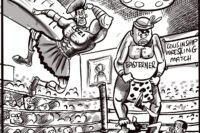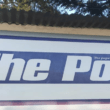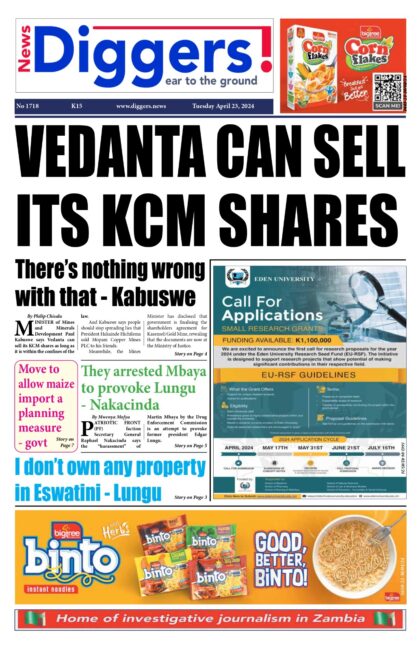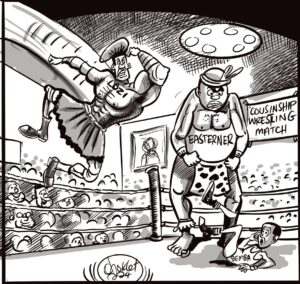Patriots for Economic Progress (PeP) president Sean Tembo has warned that the manner in which President Edgar Lungu is handling Konkola Copper Mines’ (KCM) Plc liquidation will cost Zambia tremendously similar to the 2012 repossession of Libyan firm LapGreenN.
And Tembo says that the route taken by government to repossess the mine is inconsistent with any existing form of legislation.
In an interview, Tembo feared that President Lungu was likely to proceed with the sale of KCM despite the despite the active court process.
“So, this is either contempt of the court or President Lungu is well aware that he is able to influence the decisions of the court that is why he is acting in the manner that he is acting. Whereby to him, he has concluded that provisional liquidation of KCM will be made final and that the court will approve the sale of KCM as a consolidated unit as opposed to selling off its individual assets, which might be used against us by Vedanta to prove that our Judiciary was compromised in favour of the Head of State and in favour of the government,” Tembo said.
“We are very concerned with the manner in which the so-called liquidation of Konkola Copper Mines is being undertaken by the government in that there are lot of contradictions; there are a lot of irregularities, and as a nation, we risk losing a substantial amount of money in paying for damages in the manner that we did in the case of the repossession of Zamtel from LapGreen of Libya in 2012. We have seen also that despite this matter still being in the courts of law, in Zambia as well as South Africa, President Lungu seems to have proceeded to appoint a negotiating team to negotiate the sale of KCM assets and yet the liquidation of KCM has not even been made final by the courts of law. From where we stand as a party, we are not necessarily against the idea of repossessing KCM and selling it to a potential investor, but the procedure has to be right. If the procedure is not right, then we risk losing even far much more as a nation in terms of having to compensate Vedanta Resources by whatever benefits we were supposed to gain from the repossession of KCM assets and the subsequent sale to a reasonable investor.”
And Tembo said the route taken by government to repossess KCM was inconsistent with any existing form of legislation.
“We are further concerned that the current conduct of the government is not consistent with any of the existing legislation whether it is the Insolvency Act of 2017 or the Companies Act of 2017 or, indeed, the Mines and Minerals Act of 2015. None of this action is consistent. Particularly, we are concerned that the route that government used to repossess KCM, which is liquidation, does not tie-up with what is on the ground at the moment. When you look at the Insolvency Act of 2017, the procedure for liquidation is pretty straightforward. When a liquidator, or provisional liquidator is appointed and confirmed, their task is basically to sell off the assets of the company and distribute the proceeds of that sale to the debtors and whatever residue income remains after paying off the creditors is actually given or rather distributed among the shareholders proportional to their shareholding, but this is not the case that we are seeing on the ground,” he said.
“On the ground we are seeing the liquidator, Mr Milingo Lungu, basically telling the nation that he has increased production at KCM, that he has paid outstanding arrears and he is basically trying to turn around the company. We have also seen the announcement by President Lungu to the effect that he has appointed a negotiating team to negotiate the sale of KCM. We are failing to reconcile the actions on the ground and the legal process in terms of what liquidation is.”
He bemoaned the high level of contradictions in the manner in which the sale of KCM was being handled, citing the appointment of a negotiating team by the President instead of the liquidator.
“We are further concerned that the people who seem to be in the forefront in terms of the liquidation or the negotiation of the sale of KCM as an asset to a potential investors are people in government as opposed to the liquidator. We have seen that President Lungu has failed to differentiate between KCM as an independent entity, which is under liquidation with the liquidator being Mr Milingo Lungu and the Government of The Republic of Zambia. He is pretty much treating the two as being synonymous. And that is why we believe he has decided to appoint a negotiating team to facilitate the sale of KCM. If any negotiating team was to be appointed, that was supposed to be done by the liquidator and not President Lungu. So, there are a lot of contradictions in this process,” said Tembo.












